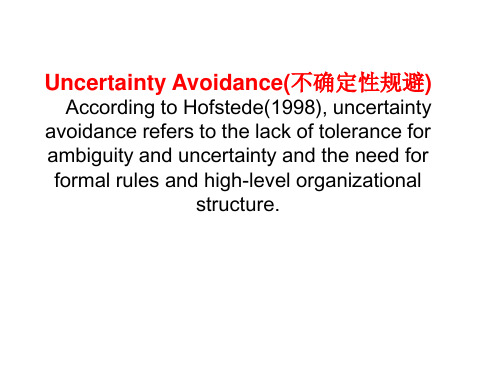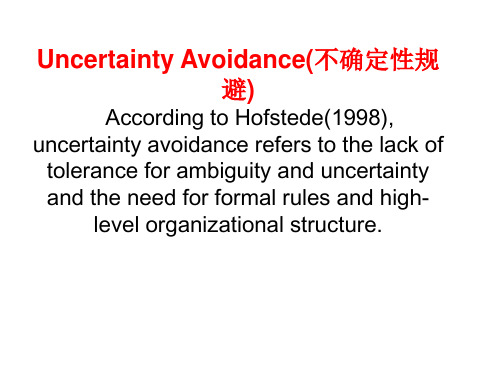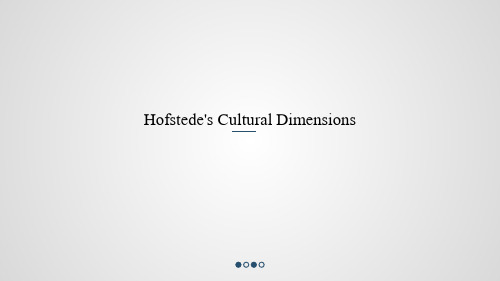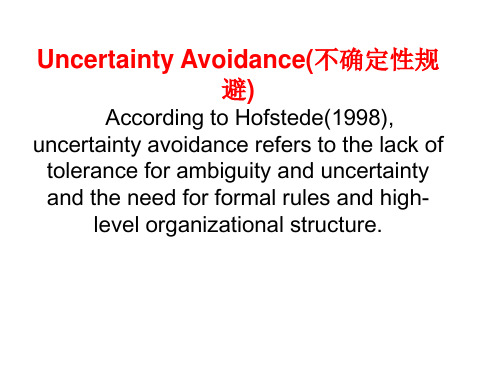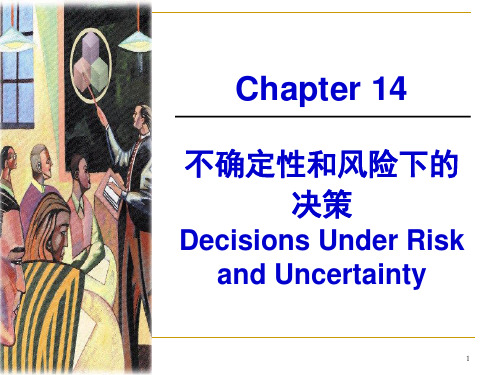Avoidance 低度不确定性规避
不确定性规避
Uncertainty Avoidance
2
High Uncertainty Avoidance 高度不确定性规避
不确定性规避程度低的社会,人们较容易接受生活中固有的不确定性,
能够接受更多的意见,上级对下属的授权被执行得更为彻底,员工倾向于
THANKS
自主管理和独立的工作。在不确定性规避较低的国家,如美国、瑞典、丹 麦、芬兰等,人们会容易地接受活中的不稳定性,容易接受非同寻常的想 法和做法。他们喜欢创新、喜欢冒险、不喜欢循规蹈矩、不喜欢等级分明 的社会制度。 而在不确定性规避程度高的社会,上级倾向于对下属进行严格的控制 和清晰的指示。不确定性规避度高的国家,如亚洲国家,会尽量去避免不
Kelly: No ... if they don’t come, I’ll know that something else came up. I’ll let you know as soon as I can.
Chang: Maybe we should plan my dinner for some other night.
低度不确定性规避
认可客观存在的不确定性,并接受这一事实,顺其自 然 生活轻松和压力很小 在公平基础上竞争 不同意见可以接受 并不认为离经叛道是威胁,所以能容忍离经叛道
对年轻人有好感
愿意在生活中冒险 强调相对性和经验性 尽量少的规章 权威为公民服务
Chang: Hey, Kelly, let’s do something tonight. Kelly: All right. Chang: Please come over to my house and I’ll cook dinner for you. Kelly: I have invited some friends over to my house for dinner tonight, but I don’t know if they’re coming. Chang: Well ... as soon as you know if they’re coming, let me know. Kelly: I won’t know until tonight. Chang: What time? Kelly: I won’t know until they call me. They’ll probably call later this afternoon. Chang: How will you know whether or not to cook enough for everyone? Kelly: Oh, I’ll make up something on the spot. I like to cook. I’ll whip up something fast. Chang: But ... what if they don’t come? Won’t they call and let you know?
